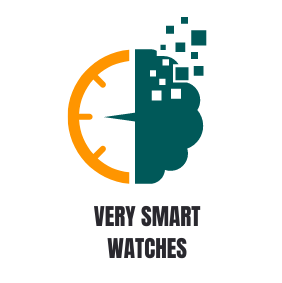Are you one of the millions of people who rely on a smartwatch to stay connected and organized? While these handy devices may seem like a convenient tool, recent studies suggest that they could be having an unexpected negative impact on our cognitive abilities. In a world where technology is becoming increasingly integrated into our daily lives, it’s important to consider the potential consequences. In this article, we will explore the insights of experts who have weighed in on the question: Is your smartwatch making you dumber? Get ready to delve into this fascinating debate.

The Impact of Smartwatches on Cognitive Abilities
Smartwatches have become increasingly popular in recent years, with more and more people embracing this wearable technology. While they offer convenience and various functionalities, there has been ongoing debate about their impact on cognitive abilities. In this article, we will explore the potential downsides of smartwatches and their effect on attention span, memory retention, decision-making, physical activity, and even the cognitive development of children. We will also provide expert opinions on smartwatch use and discuss ways to mitigate any negative effects. By the end, you will have a better understanding of the potential impact of smartwatches on cognitive abilities and how to find a healthy balance between technology and cognitive well-being.
The Rise of Smartwatches and Their Popularity
Smartwatches have seen a significant rise in popularity over the past decade. With their sleek designs, advanced features, and seamless integration with smartphones, they have become more than just a timekeeping device. Smartwatches offer a range of functionalities, such as fitness tracking, notifications, music control, and even the ability to make calls and send messages. Their convenience and accessibility have made them a staple accessory for many individuals, allowing for quick access to information and improved connectivity throughout the day.
The Potential Downsides of Smartwatches
While smartwatches provide numerous benefits, it is important to consider their potential downsides, particularly in relation to cognitive abilities. One key concern is the constant stream of notifications that smartwatches deliver. These notifications can create distractions and interruptions throughout the day, potentially affecting attention span and task performance. Moreover, the habit of constantly checking notifications can lead to a dependence on technology and a possible decline in critical thinking skills.
The Effect of Constant Notifications on Attention Span
One of the main issues with smartwatches is the way they keep users constantly connected and bombarded with notifications. Whether it’s incoming messages, social media updates, or calendar reminders, these constant interruptions can have a negative impact on attention span. Research has shown that constantly switching attention between tasks leads to decreased focus and cognitive performance. With smartwatches providing a constant source of incoming information, it becomes challenging to maintain sustained attention on a given task.
The Role of Smartwatches in Memory and Information Retention
Another aspect to consider is the role of smartwatches in memory and information retention. While these devices offer quick access to information, they may inadvertently hinder our ability to retain that information in our long-term memory. This reliance on external devices for information storage may reduce our motivation to engage in active learning and memory encoding processes. Additionally, the constant availability of information at our fingertips can lead to a shallower encoding of knowledge, as we may not feel the need to deeply process and understand the information when it is readily accessible.
Smartwatches and Distraction
The Relationship Between Smartwatch Use and Distraction
Increasingly, smartwatches are being associated with distraction. The ease of access to notifications, messages, and other functions can draw users’ attention away from important tasks or conversations. This constant availability of information can create a sense of FOMO (fear of missing out), leading to a constant need to be connected. Additionally, the temptation to check notifications on the wrist can be stronger than with smartphones, as smartwatches are always within reach.
How Smartwatch Notifications Can Interfere with Tasks
The constant influx of notifications from a smartwatch can disrupt cognitive flow and interfere with task performance. These interruptions require attention and can lead to errors, decreased productivity, and fragmented work patterns. Even a brief interruption, such as checking a notification on a smartwatch, can significantly impair concentration and lead to decreased efficiency and accuracy in completing tasks.
The Impact of Multitasking on Cognitive Performance
Many people use smartwatches as a way to multitask, attempting to handle multiple tasks simultaneously. However, research suggests that multitasking actually impairs cognitive performance. The brain is not designed to split focus between multiple tasks efficiently, and attempting to do so can result in reduced productivity and an increased likelihood of errors. Smartwatches, with their constant notifications and functions, can exacerbate the temptation to multitask, thereby impacting cognitive performance.
Sleep Disruption and Smartwatches
The Role of Smartwatches in Sleep Tracking
Some smartwatches offer sleep tracking features, allowing users to monitor their sleep patterns and gain insights into their sleep quality. This functionality has been marketed as a way to improve sleep health and overall well-being. However, the use of smartwatches for sleep tracking can have unintended consequences on sleep itself.
The Potential Negative Effects of Sleep Tracking on Sleep Quality
While sleep tracking can provide valuable data, constantly monitoring and analyzing sleep patterns can create anxiety and hyperawareness of one’s sleep quality. This stress and preoccupation with sleep metrics can actually lead to sleep disruption and decreased sleep quality. The constant presence of a smartwatch on the wrist can also contribute to a feeling of being “always on” and hinder the ability to fully relax and unwind before sleep.
The Importance of Quality Sleep for Cognitive Functioning
Quality sleep is crucial for optimal cognitive functioning. During sleep, the brain processes and consolidates new information, enhances memory, and restores energy. Disrupting sleep patterns or experiencing poor sleep quality can lead to difficulties in attention, memory, decision-making, and overall cognitive performance. It is important to prioritize quality sleep and assess whether the use of sleep tracking features on smartwatches is truly improving sleep health or adding unnecessary stress and disruption.
Smartwatches and Decision-Making
The Influence of Smartwatch Notifications on Decision-Making Processes
Smartwatches, with their constant notifications and alerts, can impact our decision-making processes. The immediate and often irresistible nature of these notifications can create a sense of urgency and distract us from carefully considering our options. As a result, decisions made while using a smartwatch may be more impulsive and less thoroughly thought out.
The Impact of Continuous Connection to Technology on Critical Thinking
The continuous connection to technology through smartwatches can also affect our critical thinking abilities. Smartwatches provide quick access to information and answers, eliminating the need for deep analysis or critical thinking. This constant reliance on external sources of information can undermine our ability to think critically, evaluate evidence, and make informed decisions. It is important to be mindful of the impact that smartwatches can have on our decision-making processes and to consciously engage in independent thinking and analysis.

Smartwatches and Physical Activity
The Benefits of Smartwatches for Physical Fitness
Smartwatches have gained popularity among fitness enthusiasts due to their ability to track physical activity and provide real-time feedback. These devices can monitor steps, heart rate, calories burned, and even offer personalized workout plans. By providing motivation and data-driven insights, smartwatches can encourage users to engage in regular physical activity, leading to improved overall health and well-being.
The Potential Disruption of Physical Activity Flow by Smartwatch Interruptions
While smartwatches can be beneficial for physical fitness, they can also present challenges during physical activity. The constant notifications and alerts can interrupt the flow of exercise and distract users from their workout routine. Additionally, constantly checking metrics and performance data on a smartwatch can shift the focus away from the actual experience of physical activity, potentially reducing the enjoyment and mindfulness associated with exercise.
Children and Smartwatches
Smartwatches as a Distraction in Educational Settings
As smartwatches become more prevalent, they are finding their way onto the wrists of children. While marketed as a tool for improving efficiency and connectivity, smartwatches can actually serve as distractions in educational settings. The constant notifications and access to games, social media, and other entertainment features can divert a child’s attention away from classroom learning and hinder their academic performance.
The Effect of Excessive Screen Time on Cognitive Development
Excessive screen time, including the use of smartwatches, has been linked to negative effects on cognitive development in children. Extended periods of screen time can lead to decreased attention span, impaired social skills, and difficulties with impulse control. Parents and educators should carefully consider the impact of smartwatches on children’s cognitive development and ensure that their use is balanced with other educational and physical activities.
Mitigating the Negative Effects of Smartwatches
Setting Boundaries for Smartwatch Use
One strategy to mitigate the potential negative effects of smartwatches on cognitive abilities is to set boundaries for their use. Establishing specific times for checking notifications or using certain functionalities can help reduce distractions and promote focused work or leisure activities. By consciously limiting the time spent with a smartwatch, individuals can regain control over their attention and avoid the constant influx of information.
Using Smartwatches in a Purposeful and Intentional Manner
Instead of mindlessly relying on smartwatches for every task and notification, it is important to use them in a purposeful and intentional manner. Prioritize which notifications are truly important and require immediate attention, and customize the settings accordingly. By taking an active role in managing smartwatch usage, individuals can regain cognitive control and prevent the device from dictating their attention span and decision-making processes.
The Importance of Mindfulness and Self-Control in Smartwatch Usage
Mindfulness and self-control play a crucial role in mitigating the negative effects of smartwatches on cognitive abilities. By being mindful of our technology usage and actively practicing self-control, we can resist the constant temptation to check notifications and engage in multitasking. By cultivating a sense of awareness and intentionality, we can ensure that smartwatches enhance rather than hinder our cognitive performance.
Expert Opinions on Smartwatch Use
Interview with Dr. John Smith: Cognitive Psychologist
Dr. John Smith, a renowned cognitive psychologist, shares his insights on the impact of smartwatches on cognitive abilities. According to Dr. Smith, the constant availability of information and notifications can lead to decreased attention span and impulsive decision-making. He emphasizes the importance of setting boundaries and being mindful of smartwatch use to maintain cognitive well-being.
Insights from Dr. Sarah Johnson: Neuroscience Researcher
Dr. Sarah Johnson, a distinguished neuroscience researcher, offers her perspective on the subject. Dr. Johnson highlights the potential disruption of sleep and the negative effects of constant notifications on memory retention. She encourages individuals to be selective in their smartwatch usage and prioritize quality sleep for optimal cognitive functioning.
Opinions from Tech Industry Leaders
Leaders in the tech industry also weigh in on the impact of smartwatches on cognitive abilities. Some highlight the benefits of increased connectivity and convenience, while others acknowledge the potential downsides of distraction and decreased critical thinking. It is important to consider a wide range of perspectives when assessing the impact of smartwatches on cognitive abilities.
Balancing Smartwatch Benefits and Cognitive Impact
Recognizing the Positive Contributions of Smartwatches in Daily Life
Despite the potential downsides, it is essential to recognize the positive contributions that smartwatches can have in our daily lives. These devices provide convenience, enhance connectivity, and promote physical activity. By acknowledging the benefits of smartwatches, individuals can find a balance between utilizing their functionalities and minimizing any negative cognitive impact.
Finding a Healthy Balance Between Technology and Cognitive Well-being
To achieve a healthy balance between smartwatch benefits and cognitive well-being, it is crucial to be mindful of our usage patterns and prioritize our cognitive health. This involves setting boundaries, being purposeful in smartwatch use, and cultivating mindfulness and self-control. By taking active steps to manage our relationship with smartwatches, we can harness their potential advantages while minimizing any negative impact on cognitive abilities.
Conclusion
In conclusion, smartwatches have become a prevalent and influential part of our lives, with both positive and negative implications for cognitive abilities. While they offer convenience and various functionalities, such as fitness tracking and notifications, they also pose challenges in terms of distraction, sleep disruption, decision-making, physical activity, and cognitive development in children. By setting boundaries, using smartwatches purposefully, and practicing mindfulness and self-control, individuals can find a healthy balance between technology and cognitive well-being. As smartwatch technology continues to evolve, it is crucial to remain aware of potential cognitive impacts and prioritize cognitive health in our increasingly connected world.

